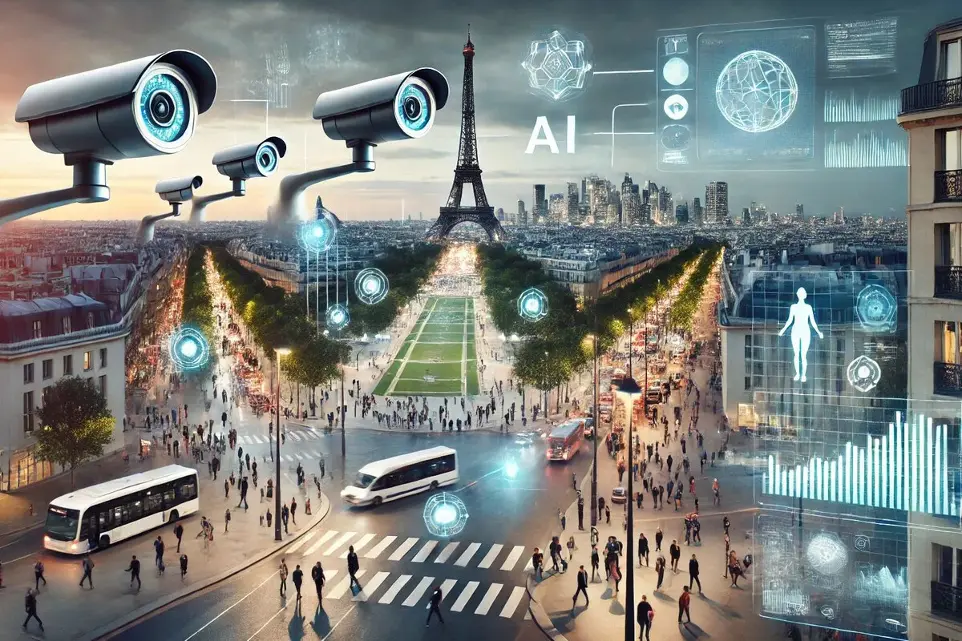
Mass AI video surveillance during Paris Olympics a nightmare for privacy, activists say
They fear that the 'exceptional' rules approved for the Olympics will remain after the Games
As the opening of the 2024 Paris Olympics draws closer, an event that will bring together some 600,000 people from around the world, debate is intensifying over the planned use of AI surveillance technologies. The French government's recent approval of Article 7, which allows the use of experimental surveillance technology in view of the event, has raised concerns among privacy and freedom of expression advocates.
Article 7 authorises the use of algorithmic surveillance to detect "predetermined events" by monitoring crowds in real time to identify 'abnormal behaviour' and congestion.
Given the expected turnout of participants and the public, it is understandable that the French government wants to ensure the safety of the Games. However, human rights activists have expressed concerns about the violation of personal freedoms and existing privacy laws, such as the EU's General Data Protection Regulation (GDPR).
France is not China. But.
Indeed, according to an open letter from 38 European civil society organisations, Article 7 could violate the GDPR by not being sufficiently limited in scope and by collecting physiological and behavioural characteristics of individuals, which could have a chilling effect on civil liberties.
And while the processing of biometric data and facial recognition are prohibited, the technology must necessarily isolate and identify individuals by physical characteristics such as the way they walk, something in which France is following, a few years behind, in the wake of the Chinese communist regime.
This technology, based on machine learning, uses video data captured by drones and CCTV cameras. The article in question will be in force until March 2025, allowing law enforcement to experiment with algorithmic surveillance even after the Olympic Games.
Beyond Article 7. And beyond the Olympics
But beyond this article, the Prime Minister, until a few days ago, negotiated a 'classified provisional decree' that goes beyond new AI video surveillance systems and includes the expansion of circumstances in which law enforcement can resort to certain measures, such as wiretapping and the collection of geolocation and communications data.
Noémie Levain, a digital rights activist at La Quadrature du Net, sums up the concerns raised by the French government's measures well:
"We've seen this before at previous Olympics like in Japan, Brazil and Greece: what were supposed to be 'exceptional' security measures for the special circumstances of the Olympics ended up being normalised."
"They say the difference [with China] is that there will be no facial recognition here. We say it's essentially the same: AI video surveillance is a tool that allows the state to analyse our bodies, our behaviour and decide whether it's normal or suspicious. Even without facial recognition, it still allows for mass surveillance."

 IHRO NEWS
IHRO NEWS